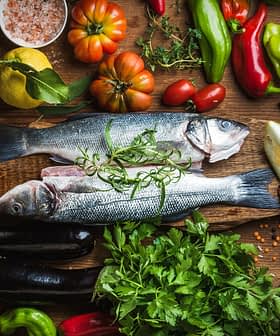The Right Olive Oil 'Dosage' for Those at High Risk of Cardio Diseases
The Dietitians Association of Australia hosted the 2nd World Forum for Nutrition Research Conference in Brisbane, where Spanish dietician Dr. Marta Guasch-Ferre presented new information on the benefits of olive oil consumption for individuals at high risk of cardiovascular disease, recommending a daily dose of 50 grams for optimal health benefits. Guasch-Ferre emphasized that high-quality extra virgin olive oil is more effective in preventing heart attacks and stroke compared to refined olive oils, as it contains more antioxidant and anti-inflammatory compounds.

The Dietitians Association of Australia (DAA) hosted the 2nd World Forum for Nutrition Research Conference on May 14 at the Brisbane Convention and Exhibition Centre.
Among the conference speakers was Spanish dietician Dr. Marta Guasch-Ferre who provided new information on the amount and benefits of olive oil consumption for people with a high risk of cardiovascular disease.

She said 50 grams, or 3.5 tablespoons, is the best dose for a person at high risk of cardiovascular disease with incidence of the disease reduced by 10 percent for every two teaspoons, according to her study, which was published on May 13 in the journal BMC Medicine.
People in this high-risk category could be those with Type 2 diabetes or with combined issues such high blood pressure, high cholesterol, smoking as well as those who are overweight or obese or have a family history of premature cardiovascular disease. However, everyone could benefit from a health-giving daily dose of olive oil which can easily be a part of any diet.
Guasch-Ferre also reinforced that high-quality extra virgin olive oil is far more likely to help with the prevention of heart attacks and stroke than refined olive oils.
“Different types of olive oil are associated with different levels of risk reduction,” said Ms Guasch-Ferre. “When olive oil is processed and refined it loses some of its beneficial properties.”
Virgin olive oil contains multiple bioactive and antioxidant components such as polyphenols, phytosterols and vitamin E. Whereas common olive oil, which is a mixture refined oil with some virgin oil (to enhance the flavor) has fewer antioxidant and anti-inflammatory compounds.
Dr. Guasch-Ferre was part of a group who analyzed death, diet and disease statistics among 7,216 people with men aged 55 to 80 years and women aged 60 to 80 years as part of the well-known Mediterranean diet study known as PREDIMED.
It followed the group over 4.8 years with yearly questionnaires and medical examinations. The study demonstrated that adherence to the Mediterranean dietary pattern enriched with extra virgin olive oil and nuts reduced the incidence of major cardiovascular events by 30 percent.
The findings underscored olive oil consumption as one of the key components of the Mediterranean diet for cardiovascular disease prevention.









